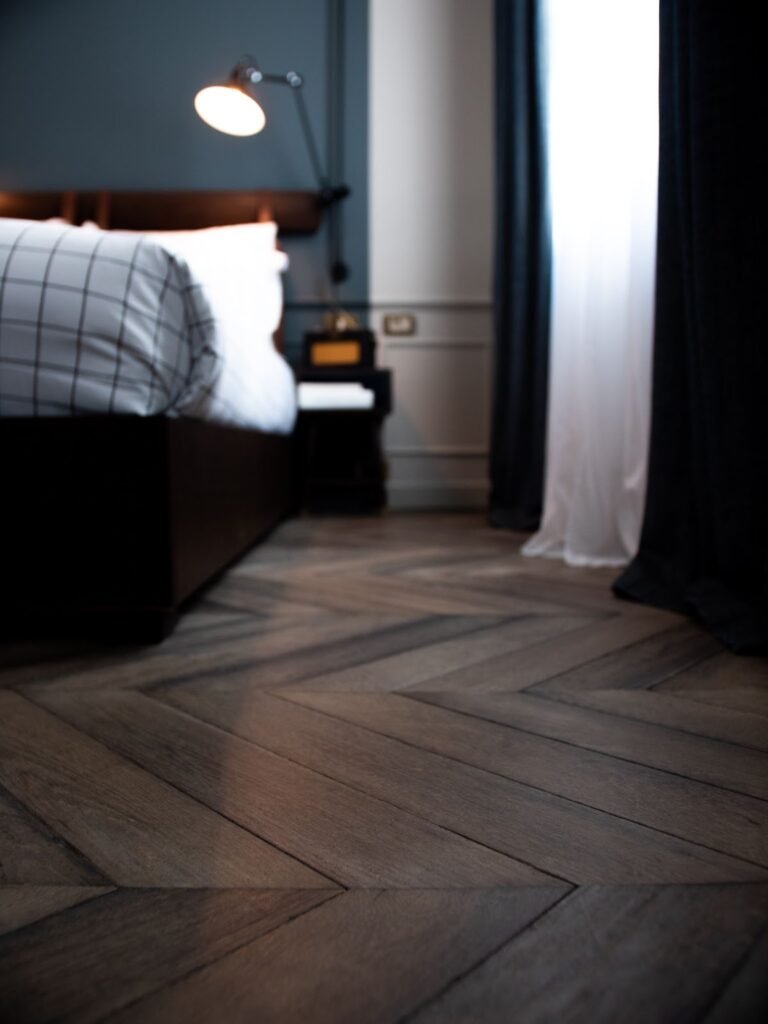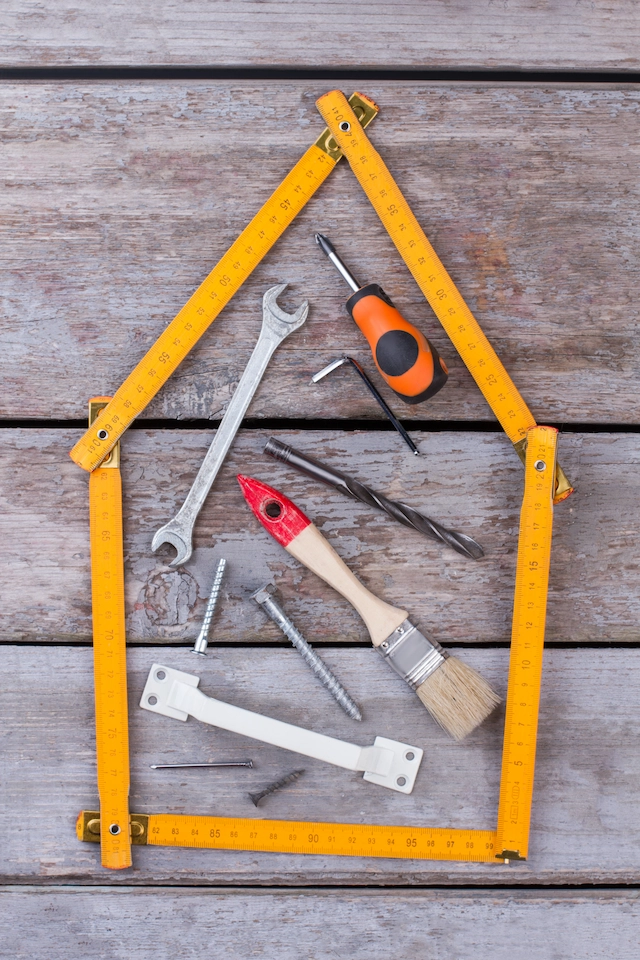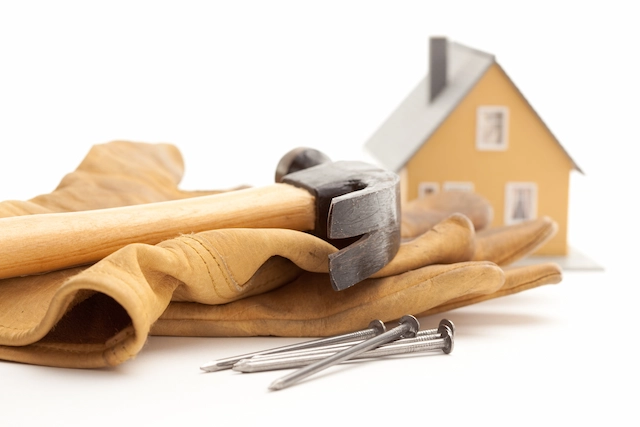Are you looking for an alternative to hardwood or stone flooring? Vinyl is an excellent option for individuals who are looking for a variety of features and design flexibility. It’s also relatively cheap and doesn’t feel authentic to its design or style. Putting it in your home won’t add value.
Pros Of Vinyl Flooring
Here are some of the pros of using vinyl flooring in your home:
Comfortable
Compared to other materials such as stone or hardwood, vinyl flooring provides a more cushioned and comfortable feel when laid. Its layered composition also helps keep the floor temperature consistent regardless of the season. It can also reduce both echo and noise in a room.
Durability
One of the most significant advantages of vinyl flooring is its durability. It can withstand the weight of foot traffic and noise, making it an ideal alternative for families with children or pets. Also, it provides an excellent floor for your feet because it doesn’t have the same hard surface qualities that other flooring options, such as tile and hardwood.
One of the main advantages of using vinyl is its resistance to various types of stains, water, and mildew. Unlike other types of flooring, liquid can stay on the surface of your floor, and you can easily wipe it away.
Cost-Friendly
Vinyl is low-cost, unlike other flooring options, such as tile or hardwood. It can be used for a variety of purposes and can look great for a fraction of the price. Also, it’s straightforward to install, so that you can save on professional installation costs.
Beautiful In The Eyes
Today, vinyl flooring offers a wide range of unusual and striking patterns and textures. These include hand-scraped and distressed wood-like finishes and various stone and marble effects.
Cons Of Vinyl Flooring
Like any other flooring, there are some disadvantages of vinyl flooring:
Tough To Remove
The backing of vinyl can stick to the floorboards after it has hardened. Removing this type of floor requires only elbow grease.
Trim and remove all of the furniture in the space, including the trim and walls. To cut the vinyl, use a utility knife to cut 12-inch strips. Pull up the flooring strip manually. If the floor resists, use a hammer, chisel, or scraper tool to chip away at the hardened glue.
Mix 1/2 cup of dish soap with 1 gallon of tap water and apply the glue to the floorboards. Let it sit for around 30 minutes to soften it. After that, use a scraper to remove any remaining residue. For stubborn areas, apply direct heat to the surface using a hairdryer.
Quality Is Inconsistent
Despite the wide variety of luxury vinyl products, the quality varies across different brands. For instance, some top-rated brands, such as Armstrong, Shaw, and Mannington, offer different levels of construction and thickness.
Depending on the thickness, vinyl can come in varying ranges from 2 to 8 mm. Thinner materials are prone to indentation, while thicker ones offer more excellent stability and cushioning. This material is ideal for heavily trafficked areas, such as hallways and kitchens.
For construction purposes, rigid core vinyl manufactures with four layers of material that provide strength and stability. These are heavy-duty planks that look and feel like wood. Luxury vinyl comes with waterproof PVC, a synthetic polymer for kitchens and bathrooms. While all types of flooring are water-resistant, high-quality products can repel water for a longer time.
Due to the presence of a chemical known as phthalates, it’s important to note that certain types of vinyl flooring may cause respiratory and reproductive issues. Some brands have reportedly reduced the levels of toxins in their products.
Not Eco-Friendly
The toxic chemicals used in the production of vinyl flooring are volatile organic compounds (VOCs). These emissions can affect the health of people and the environment. If you’re worried about the effects of these emissions, you should avoid high-VOC flooring and choose a low-VOC floor.
Maintaining Vinyl Flooring
High-quality vinyl flooring is easy to maintain, especially if you have a wear layer. Your floor has likely received a surface treatment designed to keep it clean and resistant to stains and scratches. Doing so can be done by vacuuming, sweeping, and using a damp mop.
Cleaning your floors is a regular practice that can help keep them looking their best. These include using mats and rugs, putting protective pads on furniture legs, and cleaning spills.
Since the wear layer of your vinyl floor is very high, you should not treat it with wax, varnished, or steam-cleaned. Other products, such as acidic and abrasive, can also be avoided. Never direct heat your floor, as this can cause it to get damaged and even melt.

Installation And Lifespan
One of the most substantial advantages of installing vinyl flooring is that you can do it yourself, which means it can be cheaper than hiring a professional. This type of floor can be lodged as a floating floor or molded and glued together using a peel-and-stick technique.
Depending on your preparation and experience, a simple flooring project can take a couple of days. Follow the installation instructions that come with your new flooring.
On the other hand, hiring a professional to install your planks can be significantly more expensive. According to HomeAdvisor, the cost of a professional’s job is around $6,800, while the cost of doing it yourself is about $3,300. A professional will typically carry out detailed tasks such as adding trim and leveling the subfloor.
Depending on the type of flooring and the initial installation process, the lifespan of vinyl can vary from five to 25 years. It is because the various factors that affect the longevity of the flooring can change.
It’s important to note that once a vinyl floor has scratches, it has to be replaced instead of refinished. It can affect the entire floor and the type of tile or plank you use. In a well-traveled home, this range may be much lower.
Conclusion
If you’re looking for durable and waterproof flooring that will last a long time, then vinyl might be the right choice. However, it’s not the best option if you’re after a long-lasting, best-feeling, and eco-friendly product. If these are important to you, then consider other options.








